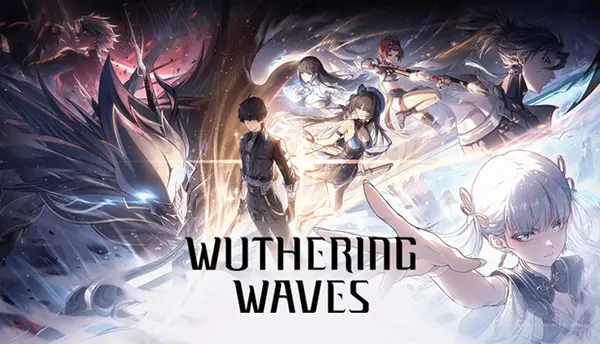
“Wuthering Waves”: A New Era of Mobile Open-World RPGs
In June 2025, “Wuthering Waves” by Kuro Games has rapidly emerged as a defining title in mobile gaming. As an open-world RPG, it combines artistic storytelling with dynamic exploration, offering a high-fidelity experience previously reserved for console-level releases. Set in a post-apocalyptic universe reborn with strange energy and mysterious lifeforms, the game brings narrative depth, fast-paced combat, and advanced visuals to a mobile device.
The Visual and Technical Evolution of Mobile RPGs
Wuthering Waves represents a leap in visual performance and world-building. Built on Unreal Engine 4 and optimised for mobile chips like Snapdragon 8 Gen 2, the game delivers realistic lighting, weather changes, and expansive maps without sacrificing performance. The level of detail in character design, terrain, and urban ruins reflects a commitment to artistic direction often lacking in mobile titles.
The game environment includes interactive elements such as gliding, wall-running, and climbing, reminiscent of AAA action titles. These mechanics help players navigate a reactive and layered world where cities lie in ruins and nature reclaims civilisation. Unlike static backgrounds, every object and location in Wuthering Waves can influence gameplay or narrative outcomes.
Moreover, the integration of a day-night cycle and dynamic weather systems deepens immersion. Strategic decisions like enemy approach or route choice often depend on environmental conditions, enhancing the realism of the gameplay loop and making each exploration feel unique.
How Wuthering Waves Reframes World Interaction
What sets Wuthering Waves apart is how it encourages player interaction with the environment beyond typical fetch quests. Resources are context-based, and traversal isn’t just a means to reach goals — it’s part of the journey. Using the Sensor system, players detect memory echoes, fragments of past lives, that unlock both lore and strategic abilities.
Some terrain challenges require thoughtful combinations of skills, from high-speed aerial dashes to precision climbs. This ensures the map isn’t just a space to move through, but a challenge to decode and master. Meanwhile, musical compositions adapt to regions and times of day, reinforcing emotional beats during exploration or story reveals.
Additionally, enemy behaviours change according to topography. Battles near cliffs or rivers demand awareness of the surroundings, leveraging environmental hazards or advantages. These systems reward attentiveness, providing a sense of agency that makes the world feel alive and reactive.
Combat and Character Progression Mechanics
Wuthering Waves introduces a rhythmic, combo-driven combat system known as the “Intro Skill – Outro Skill” mechanic. Players build teams of three Resonators, each with specific archetypes and elemental affinities. Transitioning between characters mid-fight triggers combo effects that blend strategy with real-time action.
Skill trees, echo enhancements, and element-specific builds give depth to character progression. By mid-game, players can tailor their team’s tactics to suit exploration challenges, elite enemy encounters, or timed raids. This fosters strategic flexibility uncommon in mobile action RPGs.
The use of Echoes — ghostlike entities absorbed during battle — adds a unique system of ability inheritance. Each Echo grants combat skills and passive bonuses, introducing dozens of customisation options that directly affect movement, combat flow, and narrative progression.
Why the Combat System Stands Out
The rhythm-based design promotes active timing and decision-making. Unlike auto-battlers or tap-spam systems, Wuthering Waves rewards well-timed dodges, stagger combos, and quick switches. This approach lowers the skill floor but raises the skill ceiling, allowing both newcomers and veterans to find depth in the same mechanics.
Moreover, Resonator backstories influence gameplay. Characters unlock specific passive traits after key quests or dialogue interactions, meaning the narrative isn’t merely decorative. This adds an emotional component to combat, making progression feel personal rather than mechanical.
End-game content such as Tower of Adversity or Co-op Abyss Trials leverages these systems by scaling enemy AI and forcing players to adapt loadouts per trial. This consistent challenge encourages creative builds and tight reflexes rather than repetitive grinding.

The Role of Storytelling and Community Features
The narrative, set in a post-cataclysmic world called Solaris-3, gradually reveals its lore through Resonator memories, NPC diaries, and AI-guided relics. Rather than dumping exposition, Wuthering Waves unfolds its story in layers, rewarding exploration and conversation with world-building snippets and side arcs.
Main quests deal with philosophical themes like memory, identity, and the ethics of power, lending weight to player decisions. The game avoids linear storytelling, offering multiple dialogue routes and endings that shape character bonds and even terrain access in certain cases.
Social features like cooperative mode, cross-save between PC and mobile, and PvE weekly trials help maintain a vibrant community. Friend assists, competitive leaderboard events, and limited-time exploration festivals ensure the game feels alive even outside solo progression.
How the Game Builds Long-Term Engagement
Wuthering Waves balances grind with reward by implementing time-based incentives rather than pay-to-win walls. Its battle pass system provides meaningful cosmetics and resources, while premium purchases are confined to aesthetics and minor convenience boosts.
Regular content drops — including region expansions, new Resonators, and story arcs — follow a roadmap accessible in-game. This level of transparency fosters trust and anticipation, encouraging players to stay invested for the long haul.
Furthermore, the localisation and voice acting support for eight languages, including Japanese, Korean, and English, shows commitment to a global player base. Combined with adaptive UI scaling and accessibility settings, the game is both inviting and inclusive.
